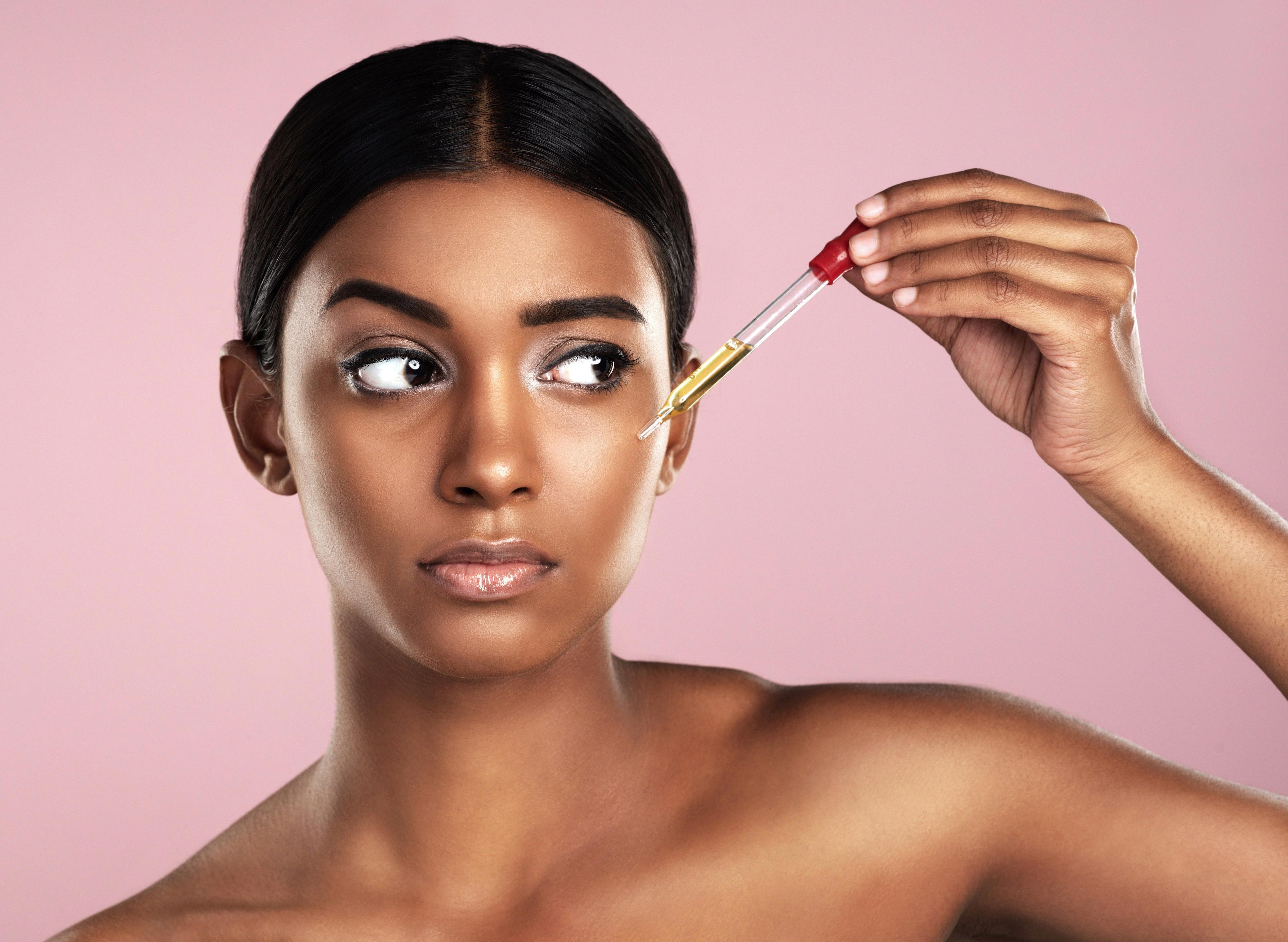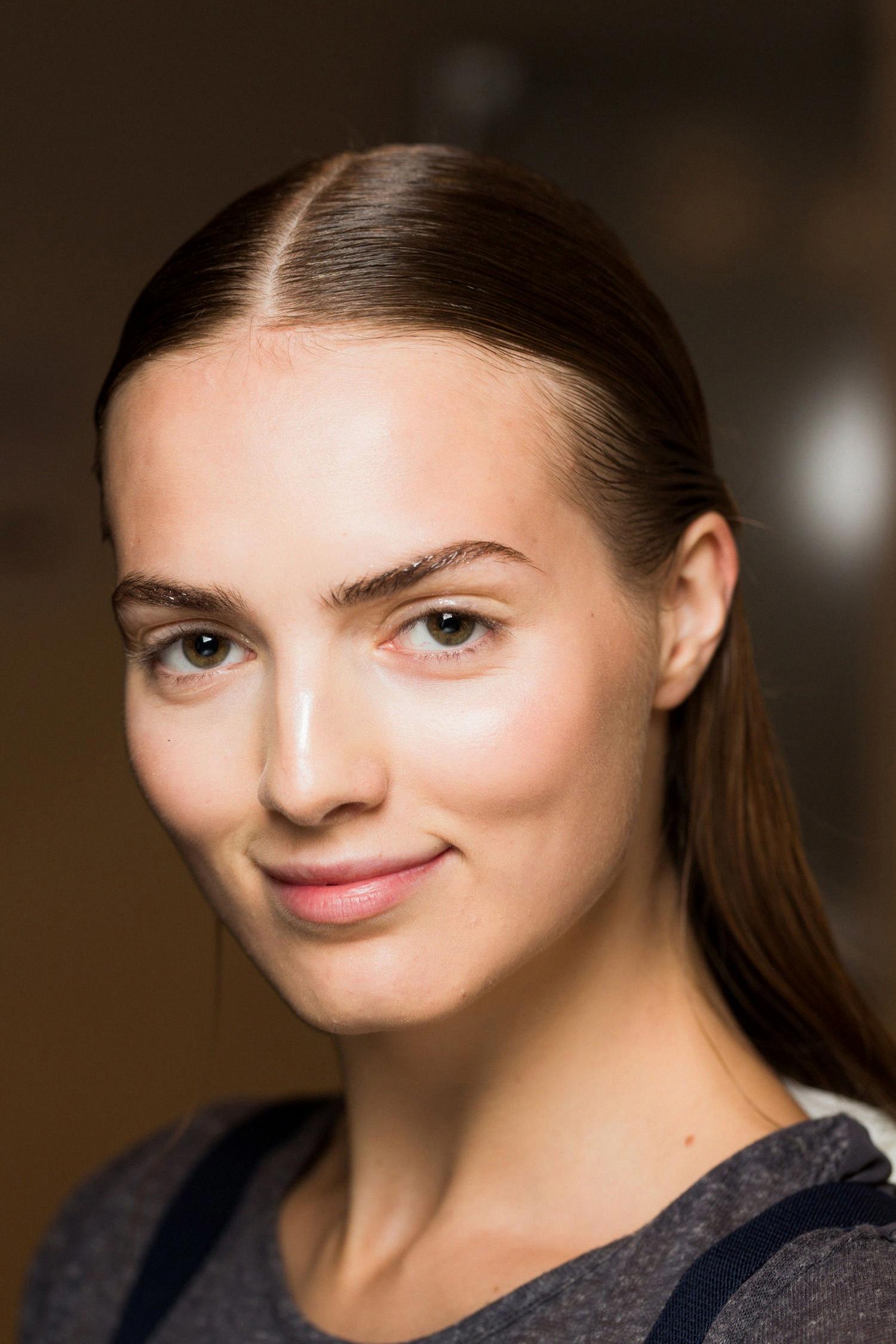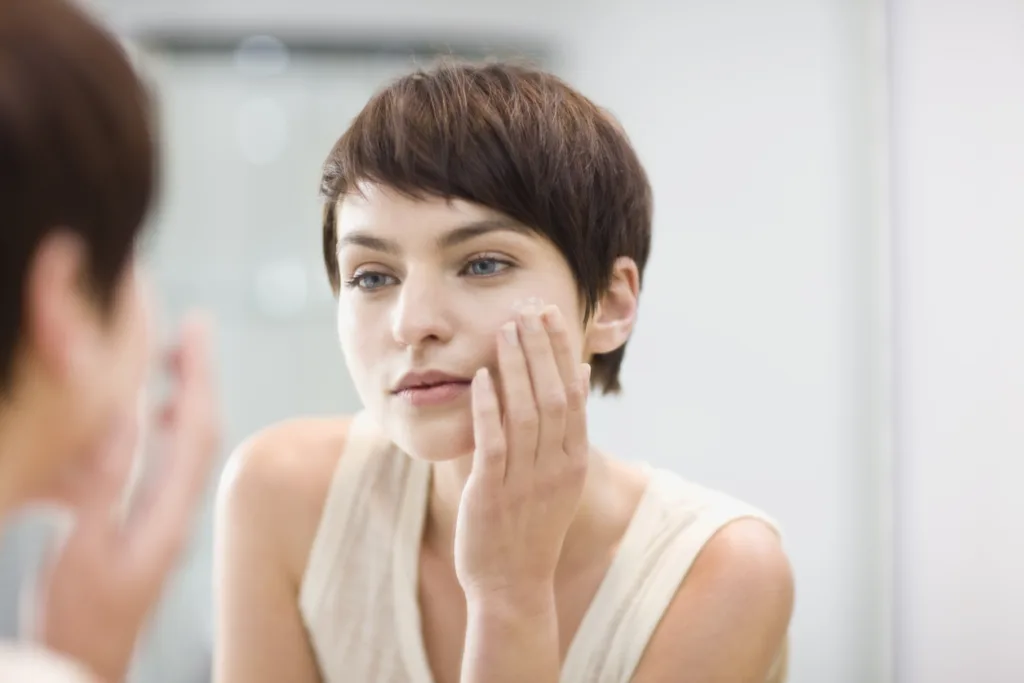Have you ever heard someone say that they’re over-hydrating their skin? It may sound like a strange concept, but it’s actually a very real thing. In fact, it can be one of the biggest contributors to skin problems like acne, dryness, and other signs of aging.
You see, the skin is the largest organ in your body and plays an important role in helping to maintain proper hydration levels. In order for your skin to stay healthy and look its best, it needs just the right amount of moisture. Too much or too little can have adverse effects on your complexion.
So what does it mean to over-hydrate your skin? Essentially, when you apply too much moisturizer or other hydrating products to your skin, you’re sending signals to your pores that they don’t need to produce as much natural oils and lipids (important components for keeping skin healthy). This can lead to clogged pores, excess oil production, small bumps on the face, and even breakouts. It can also cause your skin to become overly dry.
To avoid over-hydrating your skin and causing these issues, there are a few simple things you can do. First off, make sure you’re using products that are formulated specifically for your skin type – whether it’s dry or oily – so that you don’t add too much moisture or oil into the equation. Secondly, stick with a routine of applying moisturizer once or twice daily – in the morning and evening – for best results. Finally, if you’re still not sure if you’re over-moisturizing or not, talk with a dermatologist about how often is best for your specific needs.
Remember: when it comes to hydration levels for healthy looking skin it’s all about finding balance! Too much moisturizer isn’t always better – so take care not to over-hydrate!
The Consequences of Over-Hydrating Skin
If you over hydrate your skin, it can lead to a variety of issues such as skin sensitivity, clogged pores, and an overall decrease in the skin’s ability to maintain its natural balance of moisture. This is because over hydrating your skin sends a message to your skin that it has enough water and lipids – whih are essential for maintaining healthy skin – so it slows down its production of these important nutrients. As a result, the protective barrier on the surface of your skin (epidermis) is weakened and becomes more prone to irritation and infection. Additionally, too much hydration can cause an increase in oil production, leading to clogged pores and breakouts.

Source: allure.com
Signs of Over-Moisturizing
If you’re over moisturizing, there are a few telltale signs that you should look out for. Firstly, your pores can become clogged, which is the most immediate sign of over moisturising. This can lead to acne and breakouts as the excessive moisturizer use can cause pimples or breakouts on the skin. Secondly, your sebum production may go haywire, resulting in a dry skin texture and an increase in small bumps all over your face. Thirdly, you may find that your skin becomes dry even more quickly than usual after moisturising. Finally, if your skin feels heavy or greasy after applying lotion or cream, then this is another good indicator that you’re applying too much moisture. If any of these signs are present then it’s likey you’re over moisturizing and should reduce the amount of product used on your skin.
Frequency of Skin Hydration
The best way to keep your skin hydrated is to apply a moisturizer twice daily. Morning and night are ideal times to use moisturizer, as this ensures that your skin stays hydrated throughout the entire 24 hour period. Applying moisturizer in the morning will help protect your skin from environmental factors that cause it to dry out during the day, while applying it at night helps lock in moisture and alows your skin to repair itself while you sleep. Additionally, it’s important to avoid over-washing and using harsh soaps, which can strip away natural oils from your skin and lead to dryness.
The Effects of Over-Moisturizing the Face
Yes, it’s possible for your face to be too moisturized. Over-moisturizing can lead to clogged pores, blackheads, and excess oil production. To avoid this, moisturize no more than two times a day, and make sure you’re using a product formulated for your skin type. Additionally, try to limit the amount of time you spend in hot showers or baths; the steam and humidity can strip your skin of its natural oils.
Improving Skin Hydration: How Long Does It Take?
It takes approximately 24 hours for skin hydration levels to start improving. To maintain this improvement over the long-term, it is essential to use a consistent skincare routine that includes moisturizing and hydrating products. This should include a gentle cleanser, an oil-based moisturizer, and an occlusive layer such as Vaseline or Aquaphor. Additionally, using a humidifier in your home can help keep skin hydrated by adding moisture to the air.

Source: glamour.com
The Effects of Moisturizing on Skin
Your skin should feel hydrated, supple and soft after moisturizing. It should be free of any dryness or tightness, and the product should have absorbed nicely into the skin so that it feels like a protective layer without feeling greasy or heavy. You should also be able to apply makeup over the moisturizer without it feeling like it’s piling up on your skin.
The Benefits of Patting or Rubbing Moisturizer
Patting is generally considered the better option when it comes to applying moisturizer. This method minimizes the chances of pulling or dragging on the skin, which can cause irritation and even damage to delicate areas. It also helps to evenly distribute product across the surface of the skin while avoiding over-saturation or missed spots. Patting also encourages absorption, so you can be sure that your skin will be receiving maximum nourishment from your moisturizer.
The Negative Effects of Moisturizing on Skin
Moisturizing your skin is important to maintain healthy skin, but sometimes it can backfire and lead to more dryness. This is usually because the moisturizer is masking the symptoms of dryness witout addressing the underlying cause. When you apply a moisturizer, it forms a layer on the surface of your skin that seals in moisture from evaporating. This can give you a temporary feeling of hydration, but it prevents your skin from producing its own natural oils. Without these oils, your skin becomes even more prone to dehydration, leading to tightness and flakiness. To avoid this problem, look for moisturizers that are formulated for your skin type and contain humectants like hyaluronic acid or glycerin, which help draw water into the skin.
The Benefits of Double Moisturizing
Double moisturizing is a skincare technique that involves applying two layers of hydration to keep skin hydrated and healthy. The first layer is typically a moisturizing lotion, which provides immediate hydration, and the secod layer is typically an emulsion or cream, which seals in the moisture from the first layer and helps protect against environmental pollutants. Double moisturizing helps to keep skin soft, supple, and nourished. It also helps to protect skin from dehydration, irritation, and damage caused by free radicals. In addition to providing double protection for your skin, this technique can help reduce signs of aging such as wrinkles, fine lines, and dryness.

Source: everydayhealth.com
How to Completely Hydrate Your Skin
Having healthy, hydrated skin requires a combination of both internal and external care. To completely hydrate your skin you should start by drinking plenty of water throughout the day to ensure your body is receiving adequate hydration from the inside. Additionally, using a gentle cleanser and avoiding harsh exfoliants can help keep your skin’s natural oils balanced. After cleansing, apply a moisturizer that is suited to your skin type (i.e. oil-free for oily/acne-prone skin). If you have dry skin, consider using an ointment or cream-based moisturizer as thse tend to be more hydrating than lotions or serums. To further increase the level of hydration in your skin, apply a hyaluronic acid serum before moisturizing as this will attract and retain moisture in the skin. Lastly, use a humidifier when possible as this will add additional moisture to the air and help keep your skin hydrated throughout the day.
The Dangers of Over-Hydrating in One Day
Yes, it is possible to over hydrate in one day. Overhydration, or water intoxication, occurs when a person drinks too much water and the amount of salt and electrolytes in their body become too diluted. This can lead to a condition known as hyponatremia, which is when sodium (salt) levels become too low. Symptoms of hyponatremia include nausea, headaches, confusion, fatigue, muscle weakness or spasms, seizures and even coma. In extreme cases, overhydration can be fatal. It is important to monitor your water intake and balance it with other liquids such as juice or sports drinks that contain electrolytes.
How to Keep Skin Hydrated All Day
To keep your skin hydrated all day, it’s important to establish a daily routine that works for you. Start by moisturizing your skin every morning with a light lotion or cream and reapplying throughut the day as needed. Additionally, drinking plenty of fluids throughout the day helps to keep your body hydrated, which can help to keep your skin hydrated too. Try to limit your showers to 5-10 minutes in lukewarm water and use gentle soaps and laundry detergents that won’t strip away natural oils from your skin. You can also invest in a humidifier for the winter months when humidity levels are low indoors, as this can help draw moisture into the air around you. Finally, be sure to wear sun protection when outside for extended periods of time and limit your exposure to pollutants and irritants that can dry out the skin.
The Potential Risk of Using Excessive Moisturizer on Skin
Yes, too much moisturizer can caue wrinkles. It is important to remember that moisturizer helps the skin retain water, and when used excessively, it can actually overwhelm the skin’s ability to produce collagen and elastin, which are responsible for keeping the skin elastic. Over time, this can lead to wrinkles and fine lines. It is recommended to use a light-weight moisturizer in moderation and avoid heavy creams that could clog pores, which could also lead to wrinkles. Additionally, using a sunscreen with an SPF of 30 or higher in combination with your moisturizer will help protect the skin from further damage caused by UV light.

Should I Moisturize My Face Even If It Is Not Dry?
Yes, it is important to moisturize your face even if it is not dry. Moisturizers help to lock in hydration and create a protective barrier on the skin. This can help protect your skin from environmental factors such as pollution and the sun’s UV rays. Additionally, regular moisturizing can help to nourish the skin and improve its overall appearance by giving it a healthy glow. So even if your skin does not feel dry or tight, it is still important to use moisturizer for these benefits.
The Effects of Over-Moisturizing the Face
When it comes to moisturizer, less is more. Applying too much can make your skin look greasy and lead to breakouts. The general rule of thumb is to use a nickel-sized amount for your whole face. If you find yourself needing more, use a lighter formula or switch to a moisturizer that is better suited for your skin type.
Conclusion
In conclusion, skin health is an important part of overall health and wellbeing. The use of moisturizers can help to keep skin hydrated and healthy, however it is important to use them in moderation. Over-moisturizing can lead to clogged pores, breakouts, dryness and excess oil production, as well as compromising the skin’s ability to produce its own moisture. For best results, apply a moisturizer twice daily––every morning and every night––and choose one that is formulated for your skin type. Taking care of your skin now will result in healthier-looking skin in the future.
